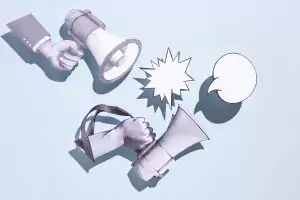
✅ AI Essay Writer ✅ AI Detector ✅ Plagchecker ✅ Paraphraser
✅ Summarizer ✅ Citation Generator
There has never been a popular writer that started as a professional. All of them—and I can guarantee you that—had their own flaws, and mistakes to learn from, and bad years, and whatever else a hardcore professional writer faces in his or her life. I am also quite sure that even if you are an amateur, you wouldn’t want your potential (or real) audience to think of you this way.
Naturally, the only way a reader can figure out about your temporary but shameful unprofessionalism is the way you write. According to my observations, a general impression about a writer is based on multiple details, such as the plot (if it’s creative writing), vocabulary, overall style, and so on. To help you dodge underwater stones and sail to the shiny banks of fame and recognition, I thought of providing a short prompt for beginning writers. It won’t guarantee you success, but hopefully it will save you from the most obvious mistakes amateurs make.
- You should have a clear vision of your storyline (or academic paper) as a whole. If you are about to write a novel or a short story, you should have a general outline, briefly covering the main events of each chapter. If you are working on an academic paper, your outline must contain your thesis statement, your argumentation points, factual data (you don’t have to describe them in details though; simply sketch them out), and a conclusion. Everything can change multiple times, but starting without a plan is nonsense. Even if you have the whole story in your head, you will lose sight of it in the process of writing, so you’d better write everything down concisely in the beginning.
- Speaking of creative writing once again, there are some general rules I usually follow, and that seem to work. For example, I don’t try to make my characters talk in a way that would be unnatural for them. A slag from the outskirts can’t talk like a middle-class office worker, so I do my best to make their speech sound natural. If I need, I can even go there myself to listen how people talk at a certain location. But at the same time, I avoid using slang or explicit vocabulary when it’s not needed. I try not to be educative, moralizing, explaining, teaching, or in some other way intrusive—I just describe what I see and think. In other words, I don’t state (well, sometimes I do)—I make guesses, as well as my readers.
- The procedure of writing is as important as what you write. Try to not force yourself into writing if you don’t feel like doing it—unless you are a journalist, a professional writer, or a blogger (which is often the same), you will hardly manage to produce content from scratch. Therefore, the search for inspiration turns out to be the number one task for you.
I am planning a series of posts about the ways of seeking inspiration and dealing with writer’s block, so stay updated with the website; there’s going to be plenty of new stuff on this subject.
Here are just some basics. However, keeping them in mind will help you and raise your skills from the start. Just don’t expect that somebody’s advice will make you a great writer. Pave your road yourself, and things will go smoothly.
Follow us on Reddit for more insights and updates.




Comments (0)
Welcome to A*Help comments!
We’re all about debate and discussion at A*Help.
We value the diverse opinions of users, so you may find points of view that you don’t agree with. And that’s cool. However, there are certain things we’re not OK with: attempts to manipulate our data in any way, for example, or the posting of discriminative, offensive, hateful, or disparaging material.